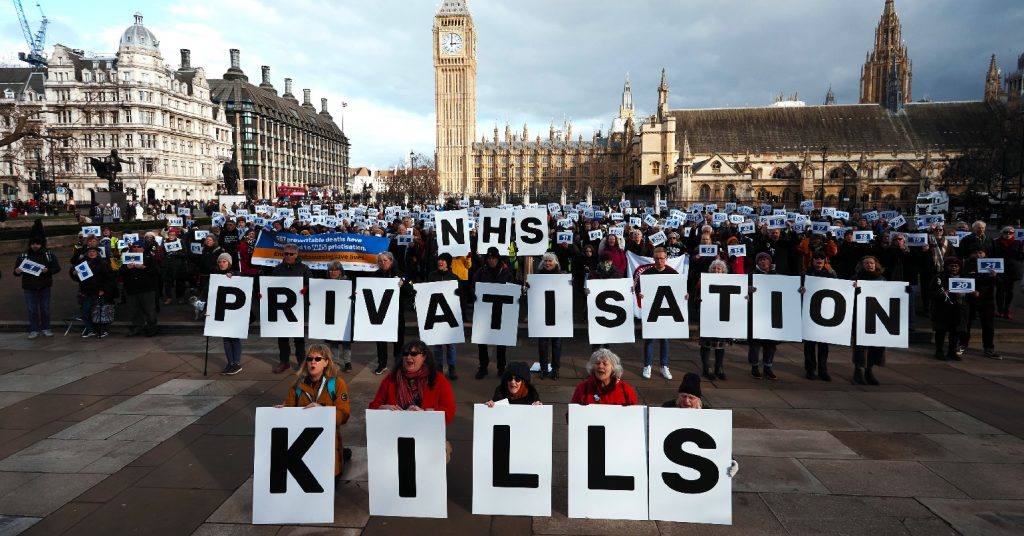Time to crush the IMF
In 2005 Latin America made up 80% of the IMF’s total lending. In 2007 it made up only 1%. Over 3 years, their total loan book dropped from $81 billion dollars to $11.8 billion. To put it another way, they lost nearly all of their power.
From around 2000, the main organisations of the world’s financial governance system started to lose their global grip on humanity. Southern countries had learnt from each other. They saw that the conditions attached to International Monetary Fund (and World Bank) loans brought with them more destruction than they were worth. The organisations depended on the political leverage they gained from this lending. They were slowly being crippled.

In these countries, the damage of IMF structural adjustment programmes (or, more recently ‘poverty reduction strategy papers’) is well known. These carbon copy corporate handbooks were imposed on African, Asian and Latin American countries for years. Whatever the problem, the ‘solution’ was the same: cuts, privatisation, deregulation. Where they were introduced, development stalled. In the years after independence, African countries had faster growth than the UK did during the industrial revolution. After the oil shock of the 70s momentarily stalled their progress, The Fund and The Bank forced them back into line. Countries were made to open their borders to capital flows and open their industries and services to corporate control. GDP growth and development both stalled.
The sister organisations who imposed this destruction were effectively what America got out of the Marshall Plan. The US paid to re-build Europe. In exchange, they were allowed a global finance system fashioned by their man – Harry Dexter Wight. It was a system designed to ensure that the powerful kept all the power: both organisations operate on an archaic voting system under which the richer a country is, the more control it has. America has a veto. And so it should be no shock that the organisations have always represented the interests of those who own them – the richest and most powerful people in the richest and most powerful countries.
And by 2007, African, Asian and Latin American countries had learnt their lesson. Short of a few loans Turkey owed to them, and the odd other billion here and there, the IMF was dead on its feet.
Then came the credit crunch. The Fund had been created to stop this from happening – while the World Bank exists to end poverty, the IMF exists to ensure global stability – to prevent a Great Depression II. And so all of a sudden the institution which had so effectively wielded the power of Western corporations turned on Western governments. They did the only thing they knew. They demanded cuts, privatisation and deregulation. Never mind that this had had been disastrous across the world. It’s what their bizarre statistical models of the world tell them is necessary. And, more to the point, it is what enriches those who control the Fund.

Surprise surprise, these policies have been just as disastrous here. They have run Greece into the ground, sending an earthquake across Europe. IMF ‘solutions’ are wrecking Ireland and Portugal, and wreaking havoc across the continent that customarily provides it with its managing director. Perhaps we are learning why our friends around the world had so spurned the organisation.
That the Tory Treasury has upped the UK’s contribution to the IMF should come as no surprise. The Fund will use Britain’s money to enforce the radical right wing economic doctrine that it is Osborne’s life mission to impose. But if Greece does default – if the IMF approach to this crisis is so obviously shown to have failed – then this increased funding will surely not be enough. Because Europeans are learning what African, Asian and Latin American people learnt. That the organisation is rotten to the core. That it was built by the powerful for the powerful. That its ideology is defunct. That it must be disbanded.
And as we demand this, let’s remember that the struggle we face is one that others faced before us. Around the world, people have had great success in sending this parasite packing from their shores. And finally, it has landed in the last place where governments are foolish enough to welcome it. And so it falls to us, the people of Europe, to crush it.



Hi Alex,
I think we need some kind of international governance structure, including for finance.so, yes, I think the IMF should be replaced. I always find it difficult to answer ‘what do you want’ questions about this because there are, of course, two potential answers: what I might want in a perfect world, and what kind of regulatory structure I’d like given the current global economy.
The former I’m less sure about.
With the latter, lots of things have been suggesed which I think may work well, and would certainly work better than the IMF. One such idea comes from the Bretton Woods negotiations themselves. The UK/Europe representative was John Maynard Keynes. He proposed an ‘international clearing union’. I won’t describe it hear now, but have a google if you don’t know about it. This seems like one viable idea.
What has happened in practice is also worth considering. The way that Latin American countries managed to get rid of the IMF was by establishing their own regional development bank, and lending to each other (mostly Venezuela lending to other countries). Of course this was mostly financed by soaring oil prices, but every region has resource rich countries in it who benefit from continental stability. Just as humanitarian intervention has only ever really worked where done by neighbours, I sometimes wonder if the same isn’t true of financial ‘intervention’ – large loans, etc. So maybe a regionalised system is a better – and more likely – road to go down.
Interesting article, but what is the solution?
Should we replace the IMF / World Bank or are you suggesting if they were dismantled the world would automatically be a better place?
Excellent article, very powerful the way it describes in 1! page, how the monster is against ANY type of human being on its war plane way…
brilliant!
we humanity do indeed need to crush (dismantel, never violence) the greed’s devoted believers.